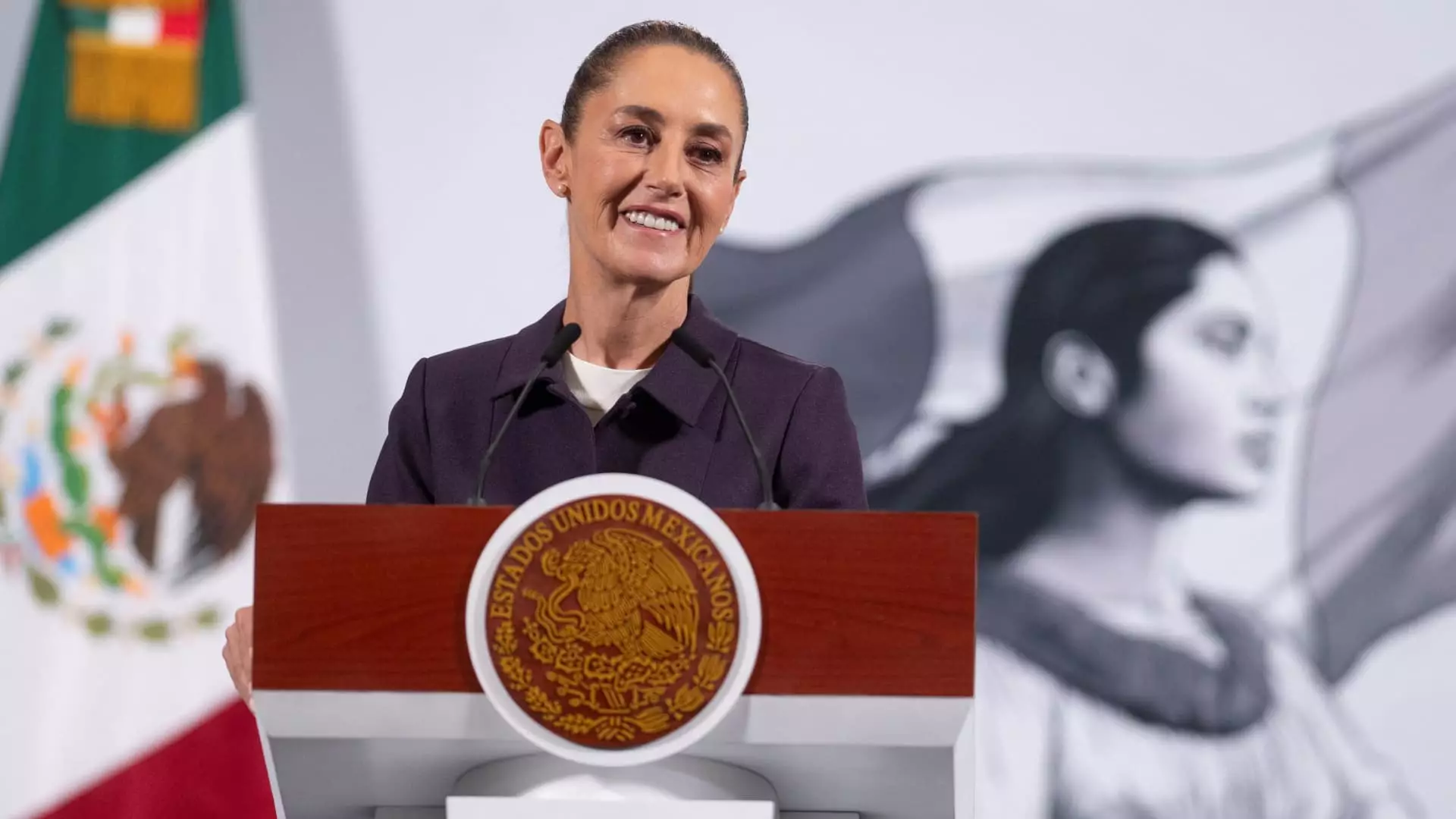Amidst the chaotic landscape of modern geopolitics, claims of diplomatic brinkmanship often serve as mere spectacle rather than substantive negotiation. The recent announcement by President Donald Trump to postpone tariff hikes on Mexican goods, ostensibly to foster better relations and advance trade talks, underscores a troubling pattern of superficial diplomatic gestures masking underlying strategic vulnerabilities. This move—presented as a show of goodwill—appears more like a temporary appeasement than a genuine commitment to meaningful policy change. It raises a fundamental question: are these extended pauses in tariff increases a strategic ploy, or just another miscalculated attempt to mask the fragility of U.S.-Mexico relations?
Furthermore, the narrative spun around this extension ignores the deeper structural issues that plague the bilateral relationship. The assertion that Mexico will “immediately terminate non-tariff barriers” seems optimistic at best. What barriers are being lifted, and at what cost? This ambiguity exposes the superficial nature of the negotiations, which appear more driven by U.S. political maneuvering than genuine cooperation. The administration’s reliance on such vague promises may temporarily quell political pressures, but ultimately, it risks exacerbating mistrust unless substantive commitments follow.
The Mirage of Mutual Cooperation
Trump’s framing of the situation suggests a level of mutual understanding and progress that, frankly, is largely fabricated. The claim that the “complexities” of deals with Mexico are different from other nations reflects a broad acknowledgment of the geopolitical reality: the U.S. relies heavily on Mexican manufacturing and border economies. However, this dependency inherently skews negotiations, often privileging American interests at Mexico’s expense. The extended tariffs, while presented as temporary, serve as an economic weapon—an Asymmetric tool that pressures Mexico into concessions under threat of crippling tariffs.
It is telling that the leadership surrounding Trump, including figures like Vice President JD Vance and Secretary of State Marco Rubio, are often more concerned with political optics than genuine policy outcomes. Their involvement signals a strategic dance to maintain leverage rather than to forge durable agreements. This approach risks fostering a transactional view of international relations, where threats and promises replace honest dialogue. Such tactics undermine the possibility of long-term cooperation and instead deepen divisions.
Implications for American Policy and Society
The reliance on tariffs as leverage reveals an ideological stance that favors protectionism over progressive engagement. While some argue that tariffs are necessary tools to combat cross-border crime or safeguard national interests, this perspective neglects the human and economic costs borne by ordinary people on both sides. Tariffs distort markets, inflate costs for consumers, and strain diplomatic goodwill. Reverberations of such policies extend beyond the immediate trade figures, feeding into broader narratives of suspicion and hostility, particularly given the contentious political atmosphere surrounding immigration and border security.
From a liberal perspective rooted in center-wing ideals, the approach taken in these negotiations shows a failure to prioritize multilateralism and human-centric policies. Instead of leveraging cooperation to address root causes—such as poverty, violence, and institutional weakness in Mexico—the current strategy appears to prioritize American economic dominance. This shortsighted view could inadvertently reinforce xenophobic sentiments at home, as economic nationalism tightens its grip under the guise of national security. Long-term stability and mutual prosperity require nuanced, empathetic diplomacy—not reckless tariff gambits that risk economic fallout.
The Cost of Strategic Inconsistency
By oscillating between threats and concessions, the U.S. risks eroding its credibility as a reliable partner in the global arena. The intermittent “pause” in tariffs, while politically convenient, undermines the potential for genuine agreements. Stakeholders on both sides become cynical, wary that promises are as fleeting as political winds. This tactical inconsistency hampers meaningful cooperation, leaving the foundations for future negotiations even shakier than before.
The extension also highlights a broader weakness within U.S. foreign policy—the tendency to weaponize economic tools rather than fostering diplomacy rooted in shared interests. This approach fosters a climate of suspicion, discouraging Mexico from making long-term commitments. As the global community witnesses this tentative dance, it becomes evident that American leadership may be retreating from constructive engagement in favor of short-term leverage. Such strategies, while seemingly effective in the immediate term, threaten to destabilize the very relationship they seek to strengthen, revealing a dangerous myopia at the heart of current policy.


Leave a Reply